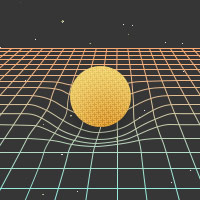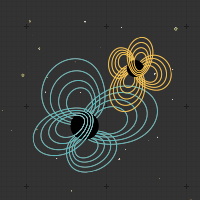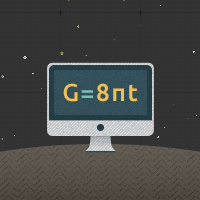The Unknown
Undiscovered marvels await
There are more things
in heaven and earth...
than are dreamt of in your philosophy.Hamlet (I, v, 166–167)
Certainly the most intriguing prospect behind observing gravitational waves is the great unknown. While the possibility of finding strange new things that scientists have only dreamt of is tantalizing, even more so is the chance to find objects that physicists have not yet begun to imagine. Gravitational waves give us a powerful way to look into places astronomers have never before been able to see — hidden behind walls of luminous matter that interfere with light, or hidden in the deepest recesses of time.
Each time scientists have used new instruments to peer into the heavens, they have discovered novel phenomena. When Galileo used one of his first telescopes, he found moons orbiting Jupiter — providing firm evidence that the Earth was not the center of the Universe. Radio telescopes discovered Quasars, and the Neutron Stars responsible for them. The first microwave telescope found the Cosmic Microwave Background, which conclusively showed that our Universe began in a much smaller and hotter state: the Big Bang.
While we can speculate on all sorts of weird events in the Universe, nature is endlessly surprising. As Richard Feynman put it, “I think Nature's imagination is so much greater than Man's. It is never gonna let us relax.” The most enticing reason to search with gravitational-wave detectors is not to find those things we think must exist, but to find those that lie waiting to be discovered.






